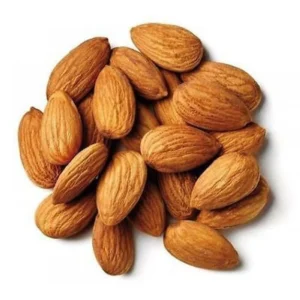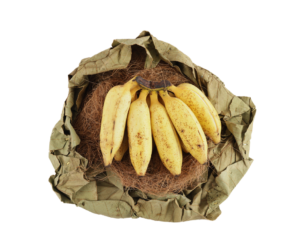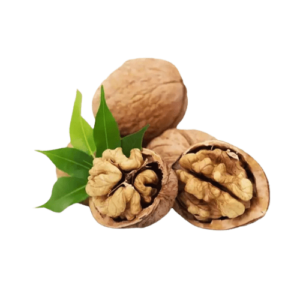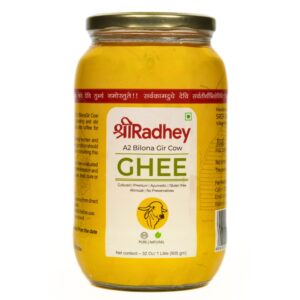In this post you will see the best superfoods in india.
1.Coconut

Coconut is a versatile superfood that offers numerous health benefits due to its rich nutrient profile. Found widely in tropical regions, coconut can be consumed in many forms, including coconut water, milk, oil, flesh, and even as coconut flour, each with unique properties and uses.
1. Nutritional Profile
- Rich in Healthy Fats: Coconut is high in medium-chain triglycerides (MCTs), a type of fat that is easier to digest and convert into energy rather than being stored as fat. This quality makes it popular for supporting weight management and sustained energy levels.
- High in Fiber: Coconut meat is an excellent source of dietary fiber, supporting digestion, stabilizing blood sugar levels, and contributing to a feeling of fullness.
- Vitamins and Minerals: Coconut provides essential nutrients like manganese (crucial for bone health and metabolism), copper, iron (for oxygen transport and red blood cell production), selenium (an antioxidant), and B vitamins (for energy and cellular health).
2. Health Benefits
- Boosts Heart Health: While coconut is high in saturated fats, these are mainly MCTs that have been shown to improve HDL (good cholesterol) and maintain healthy blood pressure, potentially benefiting cardiovascular health.
- Supports Weight Loss: The MCTs in coconut are quickly metabolized, providing energy and reducing hunger. Studies suggest that incorporating MCTs can boost calorie expenditure and fat burning.
- Enhances Brain Function: MCTs are a source of ketones, which serve as an alternative energy source for the brain. This has potential benefits for cognitive function and may aid in managing neurodegenerative diseases.
- Antioxidant Properties: Coconut contains phenolic compounds, which act as antioxidants to combat free radicals, reducing inflammation and the risk of chronic diseases.
- Improves Skin and Hair Health: Coconut oil is widely used in skincare and haircare routines, as its high-fat content helps moisturize, reduce protein loss in hair, and support skin repair.
3. Uses of Coconut
- Coconut Water: The liquid inside young coconuts is packed with electrolytes, particularly potassium, making it an excellent natural hydrator post-exercise.
- Coconut Oil: Used in cooking for its high smoke point, as well as in skin and hair care. Its antibacterial and anti-inflammatory properties make it beneficial for minor wounds and soothing skin conditions.
- Coconut Flour: A gluten-free, high-fiber alternative to regular flour, popular in baking and ideal for those on low-carb or gluten-free diets.
- Coconut Milk and Cream: Known for its creamy texture, coconut milk is often used in curries, smoothies, and desserts, adding richness and a healthy dose of fats.
4. Sustainability and Environmental Impact
- Sustainable Farming: Coconut palms require fewer pesticides and fertilizers than other crops. With high productivity, they are often considered sustainable in tropical climates.
- Economic Impact: Coconut farming supports millions of small-scale farmers worldwide. However, it’s essential to ensure fair trade and environmentally friendly practices to sustain local economies and ecosystems.
5. Considerations
- Caloric Content: Coconut and its derivatives are high in calories, so moderate consumption is advised for those watching their calorie intake.
- Allergies: Though rare, coconut allergies exist and can cause mild to severe reactions. It’s distinct from tree nut allergies and requires separate testing if suspected.
Coconut stands out as a versatile superfood with numerous health benefits. Its diverse forms—from oil and milk to water and flour—make it easy to incorporate into various diets, contributing to heart health, brain function, skin and hair wellness, and even weight management.
2.Desi Ghee
Desi ghee, or clarified butter, has been a staple in Indian cooking and Ayurvedic practices for centuries, recognized not only for its rich flavor but also for its substantial health benefits. Made by simmering butter to remove milk solids and water, desi ghee is high in healthy fats and loaded with fat-soluble vitamins and antioxidants, making it a powerful superfood.
1. Nutritional Profile of Desi Ghee
- Healthy Fats: Ghee contains short-chain and medium-chain fatty acids, including butyric acid, which has anti-inflammatory properties and supports gut health. It’s also high in omega-3 and omega-9 fatty acids, which help maintain cardiovascular health.
- Fat-Soluble Vitamins: Desi ghee is a natural source of vitamins A, D, E, and K, which are essential for immune function, bone health, skin and eye health, and overall cellular protection.
- Antioxidants: Ghee contains powerful antioxidants like vitamin E and beta-carotene, which combat free radicals and reduce oxidative stress, potentially lowering the risk of chronic diseases.
2. Health Benefits of Desi Ghee
- Boosts Digestive Health: Desi ghee is rich in butyric acid, a short-chain fatty acid that nourishes the cells lining the gut, supports healthy bowel movements, and reduces inflammation in the digestive tract. It’s particularly beneficial for people with digestive issues like irritable bowel syndrome (IBS).
- Enhances Nutrient Absorption: Ghee acts as a carrier for fat-soluble vitamins and helps in their absorption by the body, making it especially useful when consumed with nutrient-rich vegetables.
- Promotes Heart Health: Though ghee contains saturated fats, it is made up of medium-chain triglycerides, which can improve cholesterol levels by raising HDL (good cholesterol). When consumed in moderation, ghee may benefit heart health.
- Supports Weight Management: The MCTs in ghee are quickly absorbed by the liver and used as an immediate energy source, potentially boosting metabolism and reducing fat storage. This may aid in weight management and help curb appetite.
- Anti-Inflammatory Properties: The butyrate content in desi ghee has anti-inflammatory effects, which may aid in managing inflammatory diseases and conditions like arthritis.
- Improves Brain Function: In Ayurvedic medicine, ghee is regarded as beneficial for brain health. Its healthy fats support cognitive function, memory, and mental clarity, and it’s often used as a medium for herbal medicines in Ayurveda.
- Boosts Immune System: Ghee is a rich source of vitamin A, which supports immunity, and antioxidants that help the body combat infection and disease. Ayurveda also claims that ghee boosts “ojas,” or life energy, which strengthens immunity and vitality.
3. Uses of Desi Ghee in Daily Life
- Culinary Use: Known for its high smoke point, ghee is ideal for cooking, frying, and baking, as it doesn’t produce harmful free radicals when heated. It adds a distinct flavor and aroma to dishes, enhancing the taste of everything from curries to desserts.
- Ayurvedic Medicine: Ghee is often used in Ayurvedic practices, including “nasya” (nasal administration), massages, and as a medium for herbal medications. It’s believed to balance the doshas (vata, pitta, and kapha) in the body.
- Skincare and Haircare: Ghee’s rich, moisturizing properties make it an effective natural remedy for dry skin and chapped lips. When applied to the scalp, it nourishes the hair, improves texture, and helps combat dandruff.
- Natural Remedy for Burns and Wounds: With its anti-inflammatory and antimicrobial properties, ghee is often used as a healing salve for minor burns, cuts, and wounds.
4. Sustainability and Sourcing
- Traditional Preparation: Traditionally prepared ghee from pasture-raised, grass-fed cows is generally considered to be of the highest quality, as it is free from additives and high in beneficial nutrients.
- Environmental Impact: Grass-fed, small-scale dairy farming for ghee production is often more sustainable and environmentally friendly, promoting biodiversity and reducing the need for industrial dairy practices.
5. Considerations When Consuming Desi Ghee
- Caloric Density: Ghee is calorie-dense due to its high-fat content. Moderate consumption is recommended, particularly for those watching their calorie intake or managing weight.
- Lactose Intolerance Friendly: Since the milk solids are removed during preparation, ghee is typically suitable for individuals with lactose intolerance, making it a good alternative to butter.
- Potential Saturated Fat Concerns: Though rich in healthy fats, ghee does contain saturated fats, so balancing its intake with other fats (like unsaturated fats from olive oil, nuts, and seeds) is ideal.
Desi ghee’s nutrient-rich profile and multifunctional uses make it a staple superfood, deeply valued for its health, culinary, and therapeutic benefits. With proper sourcing and moderate consumption, it can support digestion, brain function, immunity, and more, enhancing overall health in a natural and flavorful way.
3.Almonds

Almonds are a nutrient-dense superfood celebrated for their high concentration of essential nutrients, including protein, healthy fats, fiber, vitamins, and minerals. Known for their slightly sweet flavor and versatile uses, almonds can be enjoyed raw, roasted, or as almond milk, butter, oil, and flour, making them an excellent addition to a balanced diet.
1. Nutritional Profile of Almonds
- Healthy Fats: Almonds are high in monounsaturated fats, which are heart-healthy and help lower LDL (bad cholesterol) levels.
- Protein: A single ounce of almonds (about 23 nuts) contains 6 grams of plant-based protein, making them a valuable protein source, particularly for vegetarians and vegans.
- Fiber: Almonds are rich in dietary fiber, which promotes digestion, stabilizes blood sugar levels, and helps with satiety.
- Vitamins and Minerals: Almonds provide significant amounts of vitamin E, magnesium, copper, manganese, and B vitamins like folate and riboflavin, supporting various bodily functions.
2. Health Benefits of Almonds
- Supports Heart Health: Almonds contain monounsaturated fats, fiber, and antioxidants like vitamin E, which together work to reduce bad cholesterol, improve blood flow, and lower the risk of heart disease. Additionally, magnesium in almonds helps regulate blood pressure.
- Enhances Brain Function: Rich in riboflavin and L-carnitine, almonds support brain function and may help prevent cognitive decline with age. They’re often recommended for maintaining memory and overall cognitive health.
- Aids in Weight Management: The protein, fiber, and healthy fats in almonds promote satiety, making them a satisfying snack that can help control hunger and reduce overeating. Despite their calorie density, studies suggest that almonds may aid in weight management when consumed in moderation.
- Promotes Healthy Skin: Vitamin E in almonds acts as a powerful antioxidant that protects skin cells from oxidative stress and aging. Almond oil is also commonly used for its moisturizing and soothing effects on the skin.
- Regulates Blood Sugar Levels: Almonds are low in carbs but high in healthy fats, protein, and fiber, which helps stabilize blood sugar levels. The magnesium in almonds also plays a critical role in insulin regulation, benefiting people with or at risk of type 2 diabetes.
- Boosts Bone Health: The magnesium, calcium, and phosphorus in almonds support bone health and contribute to stronger, healthier bones, potentially reducing the risk of osteoporosis.
3. Ways to Consume Almonds
- Whole or Sliced: Raw or roasted almonds make for a convenient, nutrient-dense snack. They can also be sliced or chopped to add texture to salads, yogurt, oatmeal, or granola.
- Almond Butter: A nutritious spread, almond butter is a tasty substitute for peanut butter, with similar health benefits and a slightly different flavor profile.
- Almond Milk: Dairy-free and lactose-free, almond milk is a popular milk alternative that retains some of the nutrients of almonds while being low in calories. It can be used in smoothies, cereals, or baked goods.
- Almond Flour: This gluten-free flour is widely used in low-carb and grain-free baking, making it a suitable option for individuals with gluten sensitivity or those following a ketogenic diet.
- Almond Oil: Cold-pressed almond oil can be used in cooking at low to moderate heat and is also popular in skincare for its moisturizing and nourishing properties.
4. Environmental Impact and Sourcing
- Water Use: Almond trees require a significant amount of water, particularly in areas like California where much of the world’s almonds are grown. Sustainable practices, such as rain-fed farming and water-saving technologies, are essential to reduce environmental impact.
- Sustainable Farming: Purchasing organic and fair-trade almonds can support environmentally friendly farming practices and ensure fair compensation for farmers.
5. Considerations When Consuming Almonds
- Caloric Density: Almonds are calorie-dense, so moderate consumption is recommended, especially for those on a calorie-controlled diet. An ideal serving size is typically around one ounce (23 almonds) per day.
- Allergies: Almonds are a common allergen, and almond allergy can cause reactions ranging from mild to severe. Those with tree nut allergies should avoid almonds and related products.
- Oxalate Content: Almonds contain oxalates, which can contribute to the formation of kidney stones in susceptible individuals. If you have a history of kidney stones, it may be wise to limit almond intake and consult a healthcare provider.
Almonds are a nutrient powerhouse packed with healthy fats, protein, fiber, and antioxidants, offering a wide range of health benefits. Their versatility makes them a staple in various diets, from snacks and baking ingredients to dairy substitutes. With moderate consumption, almonds support heart, brain, skin, and bone health and make an easy, nutrient-rich addition to a balanced diet.
4.Banana

Bananas are a versatile and nutritious superfood, celebrated for their convenience, natural sweetness, and high nutrient density. As one of the world’s most popular fruits, bananas are loaded with essential vitamins, minerals, antioxidants, and fiber, making them a powerful addition to any diet. Available year-round, bananas are easy to incorporate into meals or snacks and provide numerous health benefits.
1. Nutritional Profile of Bananas
- Carbohydrates: Bananas are high in natural sugars and complex carbohydrates, which provide quick and sustained energy, making them a favorite for athletes and anyone needing an energy boost.
- Fiber: With around 3 grams of fiber per medium banana, bananas aid digestion, promote satiety, and help maintain stable blood sugar levels.
- Vitamins: Bananas are an excellent source of vitamin C, which supports immune health, and vitamin B6, which aids in brain health and mood regulation.
- Minerals: Known for their high potassium content, bananas also contain magnesium and small amounts of calcium and iron, all of which contribute to muscle, heart, and bone health.
- Antioxidants: Bananas contain powerful antioxidants, such as dopamine and catechins, which protect cells from damage and may reduce inflammation.
2. Health Benefits of Bananas
- Promotes Heart Health: The potassium and magnesium content in bananas helps maintain healthy blood pressure levels, reduce the risk of stroke, and support heart muscle function.
- Aids in Digestion: Bananas contain prebiotics that nourish gut-friendly bacteria and provide dietary fiber, which supports digestive health by promoting regular bowel movements and reducing constipation.
- Boosts Energy: Bananas provide a natural source of energy due to their carbohydrate content, particularly the sugars glucose, fructose, and sucrose, which the body can use quickly.
- Supports Mood and Brain Health: The vitamin B6 and tryptophan found in bananas play a role in serotonin production, potentially improving mood and helping to alleviate symptoms of anxiety and depression.
- Promotes Weight Management: As a low-calorie, high-fiber food, bananas can increase feelings of fullness, which may help reduce calorie intake and promote healthy weight management.
- Natural Remedy for Muscle Cramps: The high potassium and magnesium levels in bananas can help prevent muscle cramps, especially post-exercise, making them a popular snack for athletes and fitness enthusiasts.
- Enhances Skin Health: The vitamins and antioxidants in bananas, particularly vitamin C, help combat skin damage from oxidative stress and may support collagen production, which is essential for youthful and firm skin.
3. Uses of Bananas in Daily Life
- On-the-Go Snack: Bananas are easy to carry and require no preparation, making them a perfect snack for busy lifestyles.
- Smoothies: Bananas add a creamy texture and natural sweetness to smoothies, pairing well with other fruits, greens, and protein sources.
- Baking and Desserts: Mashed bananas can replace eggs or sugar in baking recipes, adding moisture and sweetness. They’re often used in banana bread, pancakes, muffins, and other desserts.
- Salads and Bowls: Sliced bananas are a popular addition to fruit salads, yogurt parfaits, oatmeal, and grain bowls, enhancing both flavor and nutrient content.
- Freezing for Ice Cream: Frozen bananas can be blended into a creamy, dairy-free “nice cream,” an alternative to traditional ice cream that’s both healthy and satisfying.
4. Environmental Impact and Sourcing
- Ethical Sourcing: Since bananas are largely grown in tropical regions, it’s beneficial to choose fair-trade and sustainably sourced bananas to ensure fair wages and safe working conditions for farmers and workers.
- Environmental Impact: Conventional banana farming practices can impact ecosystems through pesticide use and deforestation. Organic and fair-trade bananas are often more sustainable options that reduce environmental strain.
5. Considerations When Consuming Bananas
- Sugar Content: While bananas contain natural sugars, those watching their sugar intake may want to balance banana consumption with other low-sugar fruits, especially if managing diabetes.
- Allergies and Intolerances: Banana allergies are rare but possible, particularly among individuals with latex-fruit syndrome, who may also react to avocados and kiwis.
- Ripeness and Digestibility: Bananas can be easier to digest when fully ripe, as the starch in unripe bananas converts to simple sugars during ripening. Green bananas contain resistant starch, which is beneficial for gut health but may be harder to digest for some.
Bananas are a powerhouse of nutrients, offering fiber, antioxidants, vitamins, and minerals that benefit heart, digestive, and brain health. As a versatile, low-calorie food, bananas are an ideal choice for quick energy, satisfying snacks, and nutritious recipes, making them a delicious and convenient addition to a healthy lifestyle.
5.Walnuts

Walnuts are a nutrient-packed superfood that provides an array of health benefits due to their rich profile of essential fatty acids, proteins, antioxidants, vitamins, and minerals. Known for their distinct flavor and brain-like appearance, walnuts are a valuable addition to any diet and are associated with improved heart health, brain function, and overall wellness.
1. Nutritional Profile of Walnuts
- Healthy Fats: Walnuts are one of the best plant sources of omega-3 fatty acids, particularly alpha-linolenic acid (ALA), which plays a vital role in heart and brain health.
- Protein: Walnuts contain approximately 4 grams of protein per ounce, making them a valuable protein source for vegetarians, vegans, and those seeking a healthy plant-based protein option.
- Fiber: With around 2 grams of fiber per ounce, walnuts support digestive health, enhance satiety, and aid in blood sugar regulation.
- Vitamins and Minerals: Walnuts are rich in vitamin E, magnesium, phosphorus, manganese, and B vitamins like folate and B6, all of which support various bodily functions, including bone health and energy production.
- Antioxidants: They contain polyphenols, melatonin, and other antioxidants that help reduce oxidative stress, protect cells from damage, and support immune health.
2. Health Benefits of Walnuts
- Supports Heart Health: The omega-3s in walnuts, along with their monounsaturated fats, help reduce LDL (bad cholesterol) levels, lower blood pressure, and improve blood vessel function. Regular walnut consumption is associated with a reduced risk of heart disease and stroke.
- Boosts Brain Function: Walnuts contain DHA, a type of omega-3 fatty acid important for brain health. Their antioxidants, along with other nutrients like vitamin E, also help protect brain cells from damage and may aid in memory and cognitive function.
- Promotes Gut Health: Walnuts act as a prebiotic, feeding beneficial gut bacteria. A balanced microbiome has been linked to improved digestion, immune function, and mental health.
- Reduces Inflammation: Walnuts’ polyphenols and omega-3 fatty acids have anti-inflammatory properties that may reduce chronic inflammation, benefiting those with inflammatory conditions like arthritis and supporting overall immunity.
- Supports Weight Management: Although calorie-dense, walnuts are high in fiber, protein, and healthy fats, which help promote satiety and reduce hunger, potentially aiding in weight management and reducing overeating.
- Improves Skin Health: The antioxidants and vitamin E in walnuts protect skin cells from damage, support collagen production, and help maintain a youthful, radiant complexion.
- Regulates Blood Sugar Levels: Walnuts are low in carbs and rich in healthy fats, fiber, and protein, which can help stabilize blood sugar levels and are particularly beneficial for individuals with or at risk of type 2 diabetes.
3. Ways to Incorporate Walnuts into the Diet
- As a Snack: Walnuts are easy to carry and make a satisfying snack on their own or paired with dried fruit, yogurt, or cheese.
- In Baking: Walnuts add a crunchy texture and rich flavor to baked goods like cookies, muffins, and bread. They can be chopped and mixed into recipes for added nutrition.
- Salads and Stir-Fries: Adding walnuts to salads and stir-fries provides a nutty flavor, healthy fats, and a satisfying crunch, enhancing the overall taste and nutrient profile of the dish.
- Smoothies and Oatmeal: Walnuts can be blended into smoothies for extra creaminess or sprinkled on top of oatmeal for added crunch and nutrition.
- Walnut Oil: Cold-pressed walnut oil is a healthy addition to salad dressings, drizzled over vegetables, or used to finish dishes for a mild, nutty flavor.
4. Environmental Impact and Sourcing
- Water Usage: Walnut farming requires significant water resources, making sustainable practices important. Sourcing walnuts from areas with efficient irrigation practices can help reduce their environmental impact.
- Ethical Sourcing: Supporting organic and fair-trade walnut growers helps promote environmental sustainability and fair compensation for farmers, especially in regions with intensive nut farming industries.
5. Considerations When Consuming Walnuts
- Caloric Density: Walnuts are calorie-dense, so moderate consumption is advised, particularly for those monitoring calorie intake. A typical serving size is around one ounce (approximately 14 halves) per day.
- Allergies: Walnuts are a common tree nut allergen, so individuals with nut allergies should avoid walnuts and related products.
- Potential Digestive Issues: Walnuts’ fiber content can cause digestive discomfort for some, particularly if consumed in excess or by individuals unaccustomed to high-fiber foods. Gradually increasing walnut intake may help minimize digestive issues.
Walnuts are a versatile and nutrient-dense superfood packed with omega-3 fatty acids, antioxidants, and protein, providing benefits that range from heart and brain health to improved skin and weight management. Their rich, nutty flavor and multiple culinary applications make them a tasty and convenient way to boost nutrition and health, supporting overall wellness.

Disclaimer –
We present the products to you after doing research, but still it is possible that your experience with those products may not be good.
We can hope that your experience goes well, but we can’t make promises.
Note –
Many times there are many versions of the same product, companies do this to meet the different needs of the customers. If you go to see it yourself, you may get confused, so if you want to see our recommended product, then click on its photo.
For extra info. Contact Us
Almost every time it happens that the same thing is available at different prices on different websites and marketplaces, some products are available at a good price at one place but then it cannot be trusted whether they are genuine or fraud.
If you do not want to get into such trouble and want to buy good products at the right price, then Contact Us.
If you want to buy any of these then click on them.





